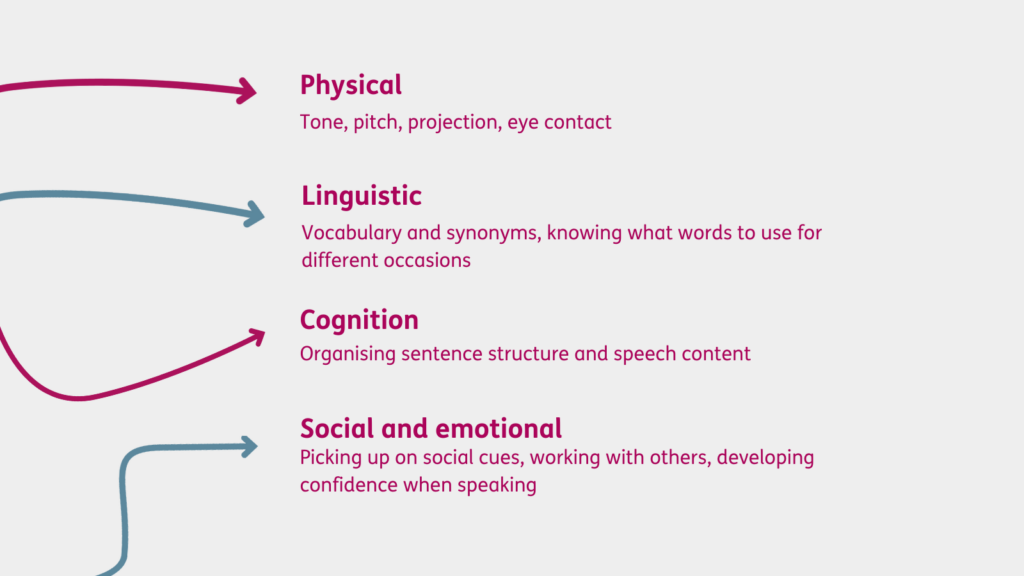
7 ways to improve speaking and listening skills
25/11/2021
Speaking and listening skills go hand-in-hand with reading, writing and vocabulary development. Here are a few of our top tips for developing and supporting oracy in the classroom.

1. Break it down
Explain what you expect from the learner and break it down into four strands (physical, linguistic, cognition, and social/emotional). Explain each strand so that the learner can understand the component parts of oracy.
2. What is the focus?
Be explicit in lessons with regards to which speaking and listening skills you’re focusing on. This will engage your learners and emphasise where they need to focus their communication skills.
3. Work with someone else
Use others to help model conversations, highlighting the traits of a ‘good’ speaker and listener. Highlight body language and mannerisms to the learner and encourage the learner to look out for and mimic them in their interactions with peers.
4. Explore synonyms
Explore synonyms to help build a wider vocabulary and avoid learners’ over-reliance of certain words. You can do this with synonym exercises in lessons to see how many different words learners can come up with. This is especially useful for learners with literacy difficulties who may be anxious to use complex vocabulary in the classroom.
Check out our synonym activity resource!
5. Start small and build
Start small and build up – allow learners to work with ‘talk partners’ to help develop their confidence in speaking and listening. You can then snowball group sizes so that learners gradually get used to speaking in front of larger and larger audiences and for longer periods.
6. Specific roles
Create and allocate specific roles for learners when discussions are taking place. While one learner is speaking, another could be coming up with counter arguments, and other could take summary notes of the discussion. Have these roles on a rota for each discussion so that pupils can build their confidence in different oracy strands incrementally.
7. Thinking time
Allow thinking time so that learners can process questions and formulate appropriate responses. This can be especially helpful for learners with literacy difficulties, as the additional times gives them a chance to fully process information before they have to organise their thoughts and speak. You might want to have them write down their ideas so they have notes to refer back to.

Discover more in our Literacy Hub!
Our Literacy Hub is home to more than 50 free teaching resources for supporting reading, writing, speaking and listening.
